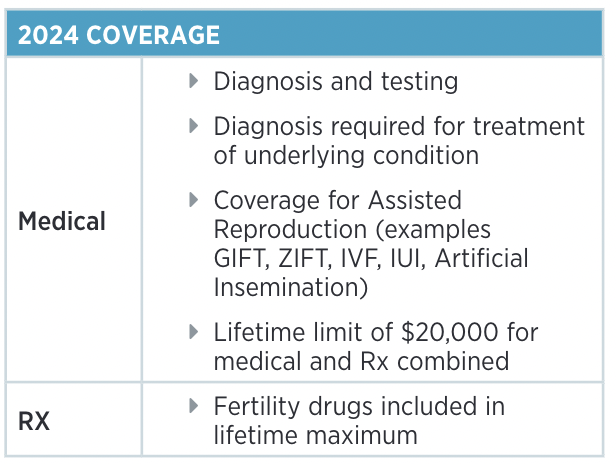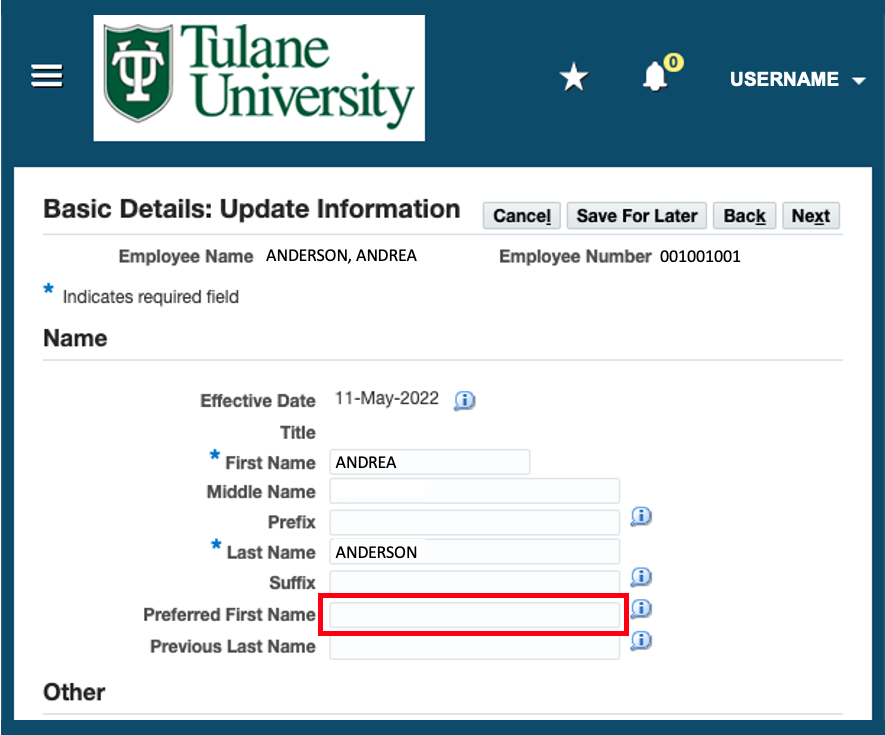.png)
At Tulane University, we celebrate diversity and embrace the rich tapestry of our LGBTQIA+ community. This page is your gateway to a wide range of resources, support, and information created to foster an inclusive environment where everyone can thrive.
The Chosen Name Project
The Chosen Name Project was created to address gaps in our technology-based platforms that currently do not support individuals with chosen names. Phase One of this project focuses on tackling foundational issues, including:
- Educating employees on updating their Chosen Name in the HR/Payroll system (students can do this through the Gibson portal).
- Integrating Chosen Name Data from HR into Banner.
- Extending Chosen Name integration from Banner to Canvas, Class Schedule, Blackboard Transact, and Grade Change systems (as already done for students).
- Implementing a mechanism to update email display names for employees and students who complete the Chosen Name form.
Our commitment to inclusivity extends to all members of the Tulane community, especially our trans and nonbinary members. While there's more work ahead, we are dedicated to fostering an environment that warmly embraces our LGBTQIA+ community.
How do I enter my chosen name into the HR/Payroll System?
Staff members have the ability to add their chosen name via EBS/Employee Self-Service. Please review the following instructions and contact the IT Service Desk at 504-988-8888 for technical issues, and reach out to hris@tulane.edu should you have any additional questions.
- Login to the EBS/Employee Self-Service portal,
- Select the Tulane Employee Self-Service link
- Select Personal Information.
- From there, click Update for the Basic Details section.
- Click Next to open the Update Information page
- Add your chosen name into the Preferred First Name field (see image below)
Trans-Friendly Health Care & Coverage For Infertility Treatment
Tulane University is committed to creating a safe and respectful campus for all members of our community, including those with all gender identities and expressions. Our health plans cover benefits for transgender, transsexual, and gender-non-conforming enrollees. This coverage includes therapy and certain medical procedures related to gender identity confirmation. To learn more, view our Benefits Guide.

Resources
COMMUNITY ENGAGEMENT ADVOCATES
This initiative, jointly managed by the Center for Public Service and the Office of Multicultural Affairs, empowers student leaders dedicated to organizing anti-racism and anti-oppression workshops, dialogues, and training sessions. The program facilitates spaces for students to delve into critical topics such as race, class, gender, sexuality, ableism, religion, and community engagement.
Encouraging a positive and proactive approach, the Conflict Resolution Program urges faculty and staff to effectively address conflicts and disputes within the workplace.
EDI EDUCATION & TRAINING PROGRAMS
Accessible to all members of the Tulane community, these educational programs and online courses are self-paced, providing a comprehensive understanding of fostering an equitable work environment.
EDI FACULTY& STAFF PROFESSIONAL DEVELOPMENT PROGRAM
The Equity, Diversity, and Inclusion Faculty/Staff Professional Development Program (EDI-PDP) involves Tulane faculty and staff in developing the capacity to contribute to and sustain EDI across the university's campuses.
Providing free support for all Tulane employees and their family members, the Employee Assistance Program (EAP) offers confidential counseling services available 24/7.
KALEIDOSCOPE RESIDENTIAL LEARNING COMMUNITY
The Kaleidoscope Residential Learning Community (RLC) establishes a first-year community that encourages identity exploration and self-reflection. Focused on creating an inclusive, gender-affirming environment, the program helps students develop cultural humility and critical thinking skills regarding personal experiences, cultural perspectives, social interaction, and institutional systems in society.
TULANE FACULTY & STAFF AFFINITY GROUPS-ALAMMEA
With an expanding array of distinct affinity groups, Tulane provides faculty and staff the opportunity to connect, thrive, and build resilience as a community.
TULANE LEGAL ASSISTANCE PROGRAM
The Tulane University Associated Student Body funds TULAP, a legal services program that provides current Tulane University students, staff, and faculty with free legal advice and reasonably priced representation. TULAP also provides complimentary notarial services and information about legal rights.
RESTORATIVE PRACTICES TRAININGS
Dive into a spectrum of tools and processes designed to foster, encourage, and mend relationships with Restorative Practices Trainings. These sessions provide a structured framework for cooperation, enhancing communication, taking responsibility, and resolving conflicts in a manner that positively impacts the entire community.
TRANS CULTURAL HUMILITY TRAINING
Explore workshops provided by the Office of Gender & Sexual Diversity, specifically tailored to create safe and affirming spaces for transgender individuals throughout Tulane's campuses.
ALL GENDER BATHROOMS & LOCKER ROOMS
Aligned with the university's commitment to non-discrimination on the basis of gender identity, individuals are welcome to use facilities corresponding to their gender identity. Those not identifying strictly as male or female may choose the facility that feels most comfortable without the need for documentation. To locate gender-inclusive restrooms, refer to the uptown and downtown campus maps.
Counseling and Psychiatric Services (CAPS)
The Counseling and Psychiatric Services (CAPS) is dedicated to establishing a safe, inclusive, and affirming community of care for all Tulane students. Services include access to short-term therapy, support groups, skill-building workshops, outreach and prevention programs, and consultation services.
CASE MANAGEMENT & VICTIM SUPPORT SERVICES (CMVSS)
Offering problem resolution, crisis management, case management, victim support, referrals, coordination, and follow-up, CMVSS provides comprehensive support during and after hospitalization and/or medical leave of absence.
Designed for inclusivity, Gender Affirming Housing (GAH) allows undergraduate students of any gender to live together, fostering a community for LGBTQIA+ and allied students. GAH principles of inclusion guide the community, which shares gender-suited bathrooms and all-gender rooms.
HR RESOURCES BUSINESS PARTNERS
Serving as liaisons for human resources-related issues, HR Business Partners consult, advise, and translate the needs of individuals and departments.
OFFICE OF EQUITY, DIVERSITY, AND INCLUSION
Coordinating university-wide EDI and anti-racism efforts, the Office of Equity, Diversity, and Inclusion (EDI) collaborates with leaders to create, implement, and evaluate programs ensuring the growth and thriving of every community member.
Tulane University encourages the reporting of incidents related to bias, harassment, or discrimination through an online reporting system. Prompt reporting facilitates timely action, and anonymity is an option.
Submit an online report* and contact the Office of Institutional Equity.
*Promptly report issues and incidents online so that appropriate action can be taken in a timely manner. You can choose to make your online report anonymous by leaving out any identifying information.
SEXUAL AGGRESSION PEER HOTLINE & EDUCATION (SAPHE)
Operated by a student organization, SAPHE provides a 24/7 confidential hotline offering support and information on issues surrounding sexual aggression within the Tulane community. Call at (504) 654-9543.
STUDENT AFFAIRS PROFESSIONAL ON-CALL
For after-hours support, a professional staff member is available 24/7 at (504) 920-9900.
“THE LINE”/CAMPUS HEALTH CRISIS SUPPORT
Available 24/7, "The Line" offers confidential support for students needing immediate assistance through calls, texts, or chats at (504) 264-6074.
Tulane University acknowledges the use of chosen names by students. Through Gibson Online, students can enter a chosen name, which is reflected in various university records. While legal names are used for certain purposes, the chosen name is applied in areas such as Splash Cards, class rosters, and directory listings.
CAROLYN BARBER-PIERRE CENTER FOR INTERCULTURAL LIFE
Comprising the Office of Multicultural Affairs (OMA), the Office for Gender and Sexual Diversity (OGSD), and Spiritual Life, the Carolyn Barber-Pierre Center for Intercultural Life works to strengthen diversity at Tulane University. It provides advocacy services, mentorship, personal support, and cultural, social, and academic programming for students of color, LGBTQIA+ students, and their allies.
Designed for inclusivity, Gender Affirming Housing (GAH) allows undergraduate students of any gender to live together, fostering a community for LGBTQIA+ and allied students. GAH principles of inclusion guide the community, which shares gender-suited bathrooms and all-gender rooms.
REILY STUDENT RECREATION CENTER
Equipped to ensure a welcoming environment for transgender and gender-diverse individuals, the Reily Student Recreation Center features gendered locker rooms with curtained showers and single-user cabanas for privacy.
INCLUSIVE PRACTICES IN LEARNING ENVIRONMENTS
Resources promote inclusive learning environments by analyzing education practices, addressing potential barriers, and providing strategies for everyone in the classroom.
RACIAL JUSTICE AND ALLYSHIP LIBRARY GUIDE
The librarians at Tulane University created a resource guide to examine important social justice issues like anti-oppression, inclusion, privilege, and so forth.
TULANE CODE OF STUDENT CONDUCT
Tulane’s student conduct system educates students about appropriate behavior, fostering a safe and healthy community for academic success.
The Newcomb-Tulane College’s Center for Academic Equity offers enrichment opportunities and need-based support to undergraduate students from historically underrepresented groups. Programs and events foster meaningful diversity and equity conversations, enhancing academic, social, and professional skills.
Dedicated to bridging the gap between academic and real-world experiences, the Center for Public Service (CPS) fosters collaborative partnerships and programs that promote empowerment, understanding, civility, and justice in communities.
Did you know?
The Pronouns feature for Zoom has been enabled for all Tulane users to add their pronouns directly to their Zoom profile.
How Does The Pronouns Feature Work?
This feature was designed to provide options for people to share more about themselves by allowing everyone to:
- Make your pronouns visible to your Zoom contacts as part of your Zoom profile card
- Choose when or if your pronouns show during a meeting that you host or join
For instructions on how to add or adjust your preferred pronouns, click here.
Want To Learn More About Chosen Name And Pronouns?
Pronouns are the words we use to refer to a person when not using their name – such as they, she, or he. He and she are examples of gendered pronouns, whereas they is an example of a gender-neutral pronoun, along with an entire array of other gender-neutral pronouns such as ze or ey.
Sharing your chosen name and pronouns is a means of telling others how you wish to be referred to. It is not a trend or a fad—it's who we are. And using someone's pronouns is more than common courtesy—it's a civil right. If someone asks you to use their chosen name and pronouns, they have likely put a lot of thought into it and trust you to respect that. Using pronouns for someone you have not used before may take practice and time. Practicing talking about the person in your head using the correct name and/or pronouns can be a helpful practice in ensuring you use a person’s correct name and pronouns moving forward.
If you use the wrong pronoun for someone, even if just by accident, that's known as misgendering—and this particularly affects transgender and gender-nonconforming individuals. People think long and hard about the pronouns that are most affirming for them, and respecting their pronouns means respecting that person and their identity. While it may take some getting used to if someone shares that they have new pronouns, it's essential to put in the extra effort to get it right moving forward to help that person feel comfortable, seen, and safe being themselves.
What If You Don't Know Someone's Pronouns?
Never assume—just ask if you're not sure. We can't assume we always know someone's gender or pronouns just from their name or appearance, so asking is the polite way to help everyone feel respected.
What Does Sharing Chosen Names and Pronouns Mean For Our Tulane Community?
The more we learn about psychological safety in the workplace, the more we can be sure it is critical to helping people feel comfortable taking risks, making mistakes, and being authentic. Sharing pronouns can help others feel more comfortable in doing the same, and demonstrating you're an ally can go a long way in helping people feel safe to be themselves in the work environment.
Building a greater understanding of gender identity and feelings of inclusion is all part of the work our community must continue to participate in to make Tulane a more inclusive and respectful place to learn, work, and grow together.

